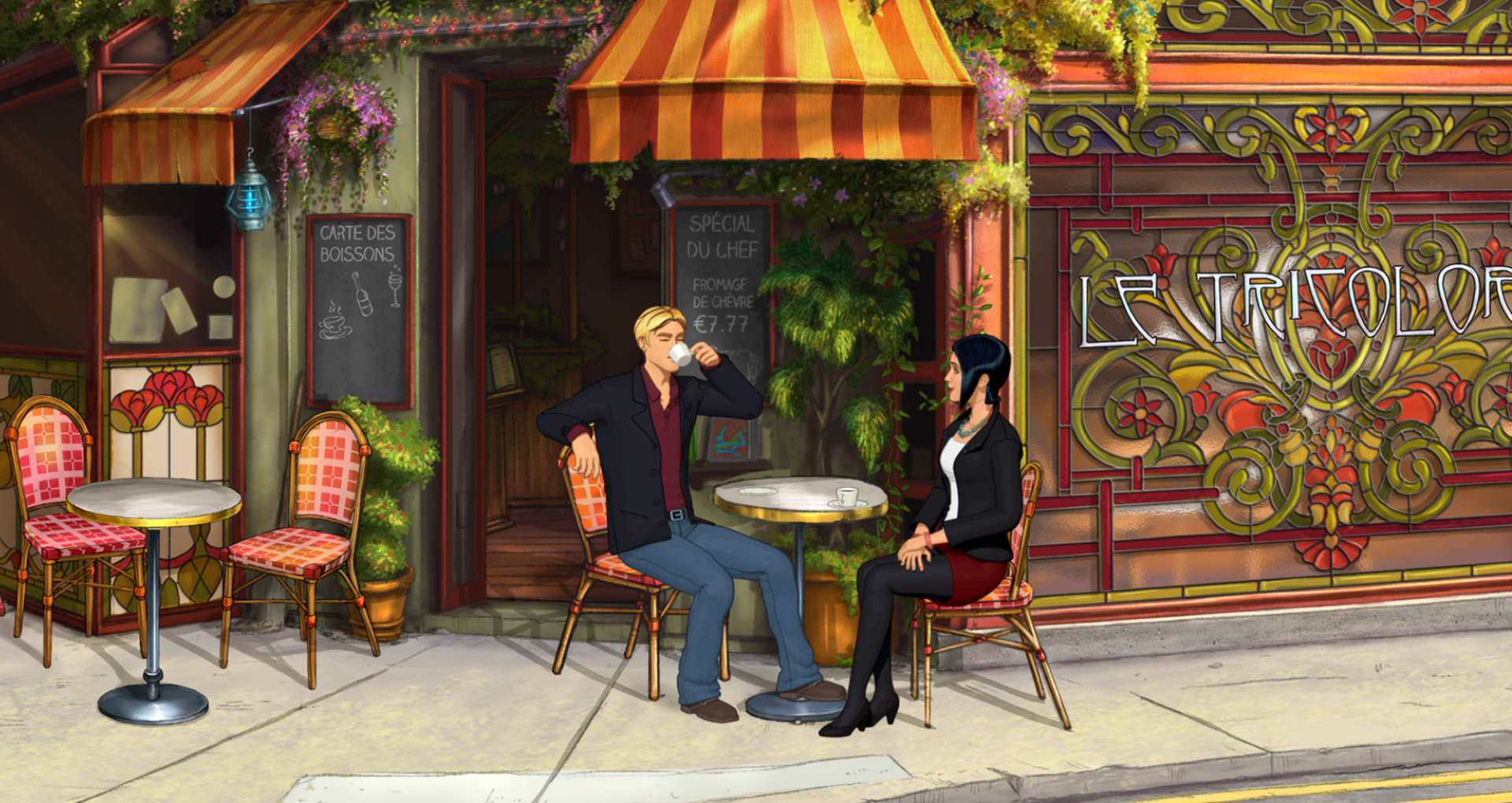GamesRadar+ Verdict
Part mystery, part comedy, this is a classy point-and-click with dazzling art, charming characters, and crackling dialogue. Although slightly overlong and occasionally slow, it feel surprisingly fresh.
Pros
- +
Immaculate art style. Every background is a masterpiece.
- +
Superb
- +
poetic writing that brings characters to life.
- +
Creative puzzles require smarts and silliness.
Cons
- -
Theres a tendency to reuse locations.
- -
Fatigue sets in during the second half.
- -
Slow puzzles kill the tempo.
Why you can trust GamesRadar+
After an ill-fated mid-naughties shift into tacky 3D, Broken Sword returns to the 1996 original’s bright hand-drawn aesthetic in The Serpent's Curse. This console port - available both through download and as a physical release - packages both of last year’s PC episodes into one £20, eight-hour story. It follows the exploits of adventurous American patent lawyer George Stobbart and sassy French photo journalist Nico Collard as they pursue a stolen painting across nations, and in the process unravel a murderous conspiracy dating back centuries.
Paris, modern day. George now works as an art insurance assessor, a job that suddenly becomes less boring than it sounds when a man darts inside Le Lézard Bleu gallery, produces a pistol from a pizza box, shoots the owner and steals a painting. La Malediccio isn't the most expensive piece in the place but it holds a dark significance.
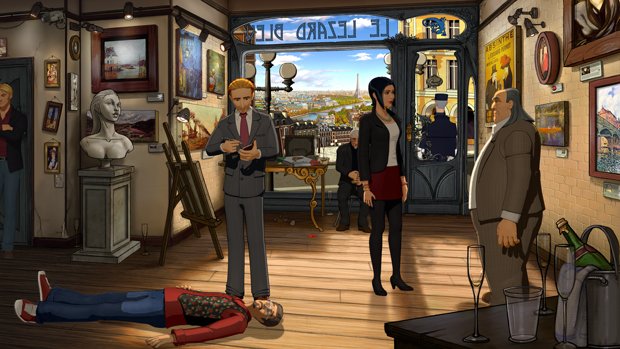
It's time for your first puzzle. The Serpent's Curse uses the same elegant interface as past Broken Swords: on Xbox One, X examines a point of interest prompting George to spout a witty descriptive line; A physically investigates further; and Y peeks inside your deceptively deep pockets. As cursor movement sits on the left stick and camera panning sits on the right, controls function just as well as on PC, the gamepad vibrating satisfyingly when you hover over something interactive, and for an extra flourish, sound pipes through the PS4 controller’s speaker when you phone someone.
The interface is effective, offering enough options to make you think but not so many you're overwhelmed. Take George waking the fainted art critic slumped in a corner. Pressing X to examine, he dryly notes his 'jacket stretched tight over his flabby form,' and in case you’re thinking about using A to rouse him with food, our savvy art insurer 'decided against stuffing cold pizza into an unconscious man's mouth.'
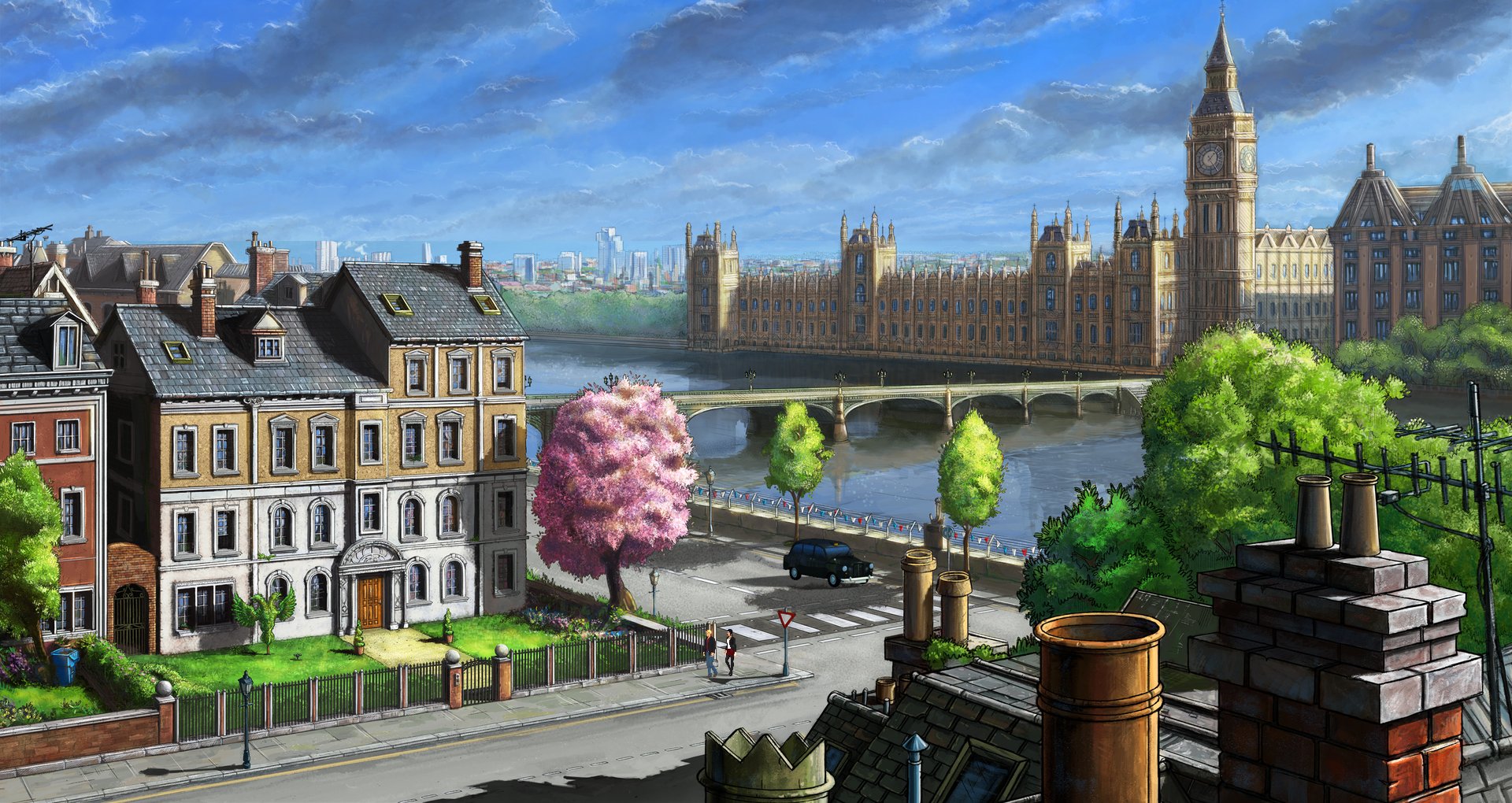
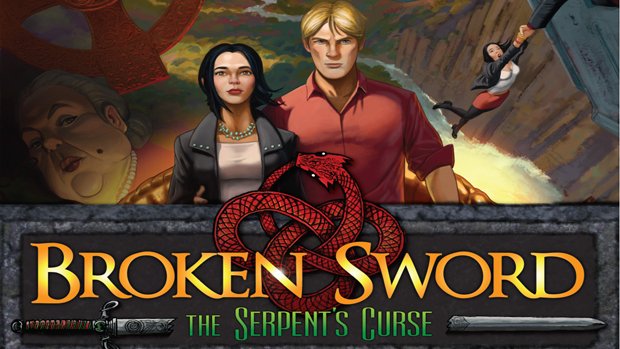
In August 23, 2012, Revolution announced The Serpent's Curse on Kickstarter with a goal of $400,000. On September 22, they raised $771,560 from 14,032 backers, meeting all goals. Reference-filled, it feels like it exists for fans. Among the callbacks is Hector Laine, Broken Sword 2: The Smoking Mirror’s rude wine guzzler whose drink you spiked with absinthe (he actually asks whether you have any more), and a reference to the infamous goat puzzle from The Shadow of the Templars.
Walk to the dead gallery owner nearby and you can pinch a bottle of eau de toilette from his garish waistcoat. The pungent odour is just what's needed, and waving it under the critic, he staggers to his feet. This example is the first of many typically Broken Sword puzzles: logical, creative, and - in plying a policeman with coffee to make him dart to the loo or opening a skylight with a bottle rocket made from coke and mentos - a little bit silly. Gags and puzzles are just as likely to soar over your head (deciphering the cyrillic alphabet) as belt you across it (decorating George’s face with makeup), but that’s part of the charm.
Other times you have to be inside the developer's head: I fix a cable car by systematically testing every item in my inventory in the hopes of finally stumbling across some convoluted solution, and the answer’s even more ridiculous than my dumbest machinations. And my machinations are pretty dumb.
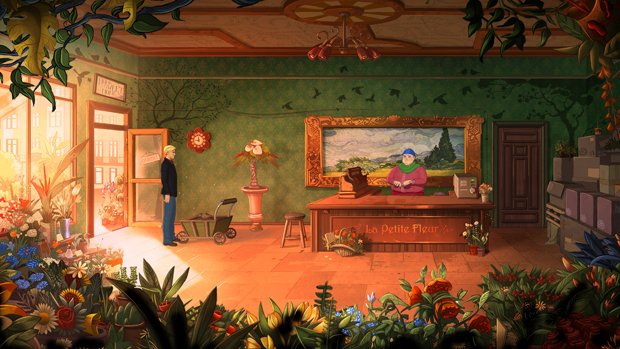
A few too many dull combination locks, codebreakers, and bits where you have to exhaust dialogue options because you don’t really know what you’re looking for grind the pace to a halt. Thankfully there’s a hint system. You first get a vague tip, then a slightly more specific one, and if you still haven’t got it by then the game basically tells you the answer. If you can resist abusing it, it’s a massive help and keeps the tempo brisk.
Although the premise seems a bit Dan Brown, any similarities are quickly dispelled - this is the Da Vinci Code by way of classic ‘90s adventure games. With Rolf Saxon reprising his role as George, The Serpent’s Curse feels like it’s been hermetically sealed. The touching moment when he and Nico roll back the years and meet over coffee in Paris is like catching up with old friends who haven’t changed a bit.
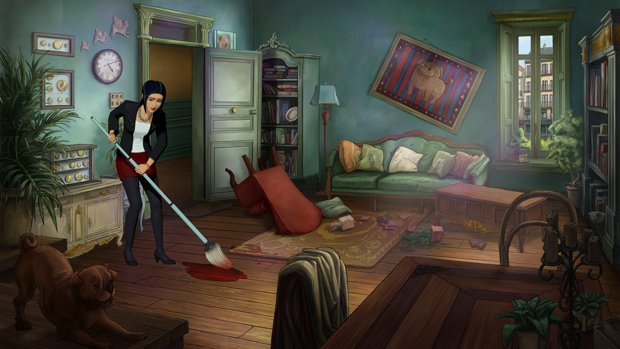
It’s a welcome departure from the usual darker, grittier sequel formula, but the tone sometimes lurches into indifference as a result. George’s initial motivation is to simply prevent his insurance employer from paying out, and his tendency to crack jokes at gunpoint robs the moments of threat. At one point when a friend is kidnapped, he strolls after him. There’s a lack of urgency in keeping it light.
The writing, on the other hand, is full of energy. Paris sections read like a love letter to the city, with its comically rude waiters quoting literature, streets lined with intricate stained glass windows, and observations of landmarks like the Sacré-Cœur basilica, the capital's highest point. A sun-baked Spain, blue-skied London, and majestic Iraq are peerlessly designed and equally gorgeous. All enlivened locations reach an almost hyper level of beauty, like if you asked an artist to visit on hallucinogens then paint his dreams.
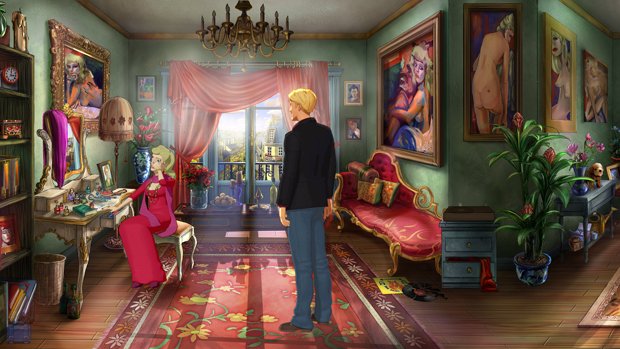
It seems crazy to call The Serpent's Curse on its recycling of backdrops, then, but returning to areas does feel a bit cheap, especially when a large part of Broken Sword's appeal has always been the anticipation of seeing where George and Nico end up next. It saps momentum, which is damaging in a slow-burning experience such as this (different time and weather effects alter some compositions at least). Worse are the cheap looking character models themselves, whose ropey animations and lack of shadows make them seem like they’ve walked off some awful CGI children’s TV show. They clash hideously with an otherwise immaculate artstyle.
The real serpent’s curse is length. It’s not as if quality dips - more that fatigue slithers in about halfway through and settles there. Despite the conspiracy darkening, pacing issues prevent the game successfully building towards its crescendo. Personally, though, that’s always been my experience with Broken Sword - enjoying the adventure so much that I power through the lackadaisical last hour. Slightly overstaying its welcome, The Serpent’s Curse is nevertheless the series’ best game in 18 years, an engrossing and gorgeous return to form that bridges the gap between then and now.
More info
| Genre | Puzzle |
| Description | Broken Sword returns and, after appearing in two instalments on iOS, this traditional point & click adventure is now a single release on PS4 and Xbox One. |
| Platform | "PS4","Xbox One" |
| Release date | 1 January 1970 (US), 1 January 1970 (UK) |
